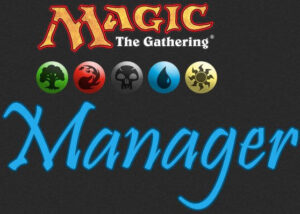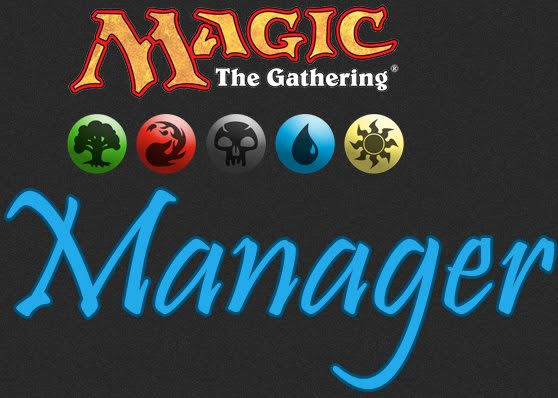
it’s important to approach it from a narrative and analytical perspective, focusing on the emotional aspects, the manager’s contributions, and the broader impact on the community. Below is a detailed outline and an example of how you could structure this piece. You can expand on these sections with more specific examples, interviews, or direct statements related to the situation.
Title: Emotional Departure: MTG Manager Waves Goodbye as He Makes His Intentions Clear – A Farewell to a Legendary Era
Introduction
In an industry built on strategy, camaraderie, and community, the departure of key figures leaves an indelible mark. Today, the Magic: The Gathering (MTG) community faces such a moment, as a beloved manager bids farewell, making his intentions clear with an emotional message that has sent ripples through the competitive landscape. This decision, both poignant and impactful, marks the end of an era for the team and its loyal fanbase.
Magic: The Gathering has long been a hub for innovation, competition, and storytelling, and the people behind its organizational success are just as critical to the game’s evolution as its players. As the manager steps down, the sense of loss is palpable, and the questions about what’s next loom large. This piece reflects on the emotional departure of this key figure, their legacy within the community, and the future that lies ahead for the MTG ecosystem.
1. The Manager’s Role in the MTG Community
Magic: The Gathering is far more than just a card game—it’s a cultural phenomenon that spans across decades. At its heart, MTG is a game that thrives on community engagement, strategy, and the tournament scene. Behind every successful team, event, or community gathering is an individual or a small group of individuals who work tirelessly to ensure everything runs smoothly.
The manager in question has long been a cornerstone of one of the most prominent MTG organizations. Whether overseeing day-to-day operations, coordinating major tournaments, or fostering relationships within the community, their role was central to the success of numerous MTG initiatives. Their departure represents more than just the loss of an employee—it symbolizes the end of a chapter in the game’s ongoing story.
Key Contributions and Impact:
Tournament Organization: Many of the best-known MTG tournaments and events, whether local or international, owe much of their success to the manager’s meticulous planning and management. Their efforts brought together the MTG community, creating spaces where players could showcase their talents and engage in fierce competition.
Team Development: The manager’s ability to cultivate talent and manage a high-performing team has helped MTG organizations stay competitive in a world where both player skill and organizational resources are at a premium. They were instrumental in maintaining a healthy and productive environment where players could thrive.
Community Engagement: Beyond just managing internal operations, the manager was often a visible and approachable figure in the MTG community. Their communication with fans, involvement in social media, and outreach efforts were key in strengthening the bond between the game and its players.
2. The Emotional Announcement: A Farewell Message
The announcement of the manager’s departure came through a heartfelt message, both on social media and within the MTG community’s primary communication channels. In this message, the manager expressed deep gratitude for the opportunities they had, the experiences they gained, and the people they met along the way.
In an era where professional figures often maintain a level of detachment, the raw emotion in the manager’s message caught many off guard. They spoke of the personal sacrifices made, the pride in seeing their team grow and succeed, and the sadness of leaving a role that had defined a significant portion of their life.
For many, the message served as a bittersweet farewell. The manager wasn’t just a face behind the scenes—they were a friend, a mentor, and someone who played a part in shaping the careers of numerous players. Their departure left the MTG community grappling with mixed emotions: pride in the achievements they helped bring to life, but also sadness at the thought of continuing without their guiding hand.
Key Points from the Manager’s Message:
Gratitude: The manager took time to thank those who supported them along the way, including their colleagues, players, and fans. The message was filled with acknowledgment of the efforts and relationships that made the journey worthwhile.
Reflection: They took a moment to reflect on their personal growth and the evolution of the MTG scene, noting how the community had changed, both in terms of gameplay and inclusivity. This reflection served as a testament to their deep connection with the community.
Future Intentions: While the farewell message was emotional, the manager also made it clear that this wasn’t the end of their professional journey. They outlined their future plans, which involved pursuing new opportunities, whether in the broader gaming industry or in a completely new field. This sense of purpose and optimism about the future resonated with many who were sad to see them go but understood that life’s chapters must come to an end.
3. The Legacy Left Behind: What the Manager Built
The manager’s departure is felt more acutely because of the deep and lasting legacy they leave behind. Over the years, the manager was instrumental in defining the direction of the team or organization they were part of. They not only shaped the way events were run but also influenced how MTG was perceived in the wider gaming culture.
The Organizational Evolution: When the manager first joined the organization, it was likely in a phase of growth and development. The game had already achieved its iconic status, but maintaining relevance in the rapidly evolving gaming world required constant innovation. Through their leadership, the manager helped transition the team or organization through various phases—adapting to changes in the industry, adjusting to new technology, and fostering new approaches to tournaments.
Their influence on the organization’s success was substantial, with key initiatives they launched or refined becoming a part of MTG’s DNA. For example, their commitment to inclusivity and diversity may have resulted in more accessible tournament formats, improved outreach to marginalized communities, or partnerships with gaming organizations that were previously underrepresented.
Team and Player Development: The manager was a mentor to many players—both established professionals and rising stars in the MTG community. Their ability to identify potential and nurture talent helped elevate the game’s competitive level. Many current players cite the manager as a key figure in their growth, attributing their success to the guidance and support received during their formative years.
For example, a former player might have come into the organization as an unknown but through the manager’s coaching and management, they grew into one of the game’s top performers. This legacy of talent development is one of the most enduring aspects of the manager’s tenure.
4. The Broader Impact on MTG and the Gaming Community
Beyond their immediate team, the manager’s influence has extended throughout the Magic: The Gathering community and the wider gaming industry. Their work helped raise the profile of MTG as a competitive eSport, leading to more sponsorships, media coverage, and a stronger presence in the gaming world.
As a manager, they played a pivotal role in connecting MTG with mainstream gaming platforms and streamers. This created visibility for the game, drawing in new players and fostering a larger, more diverse fanbase.
Moreover, their leadership in organizing community events and tournaments brought together players from different backgrounds and skill levels, reinforcing MTG’s identity as a game for everyone. It’s clear that the manager’s departure will leave a void not just in their organization but in the broader gaming ecosystem.
5. The Road Ahead: What Comes After the Departure?
While the departure of the manager is undoubtedly a sad moment, it also opens the door for new opportunities and leadership within the organization. The question now is: What’s next?
Challenges and Opportunities: For the organization, replacing someone with such a significant impact is a daunting task. The next manager will need to balance maintaining the legacy of the departing individual with driving the organization toward new achievements. In some ways, the manager’s departure might force the organization to evolve in new directions, which could ultimately lead to innovation and growth.
For the wider MTG community, the future is uncertain. The community will need to find ways to continue the work that the departing manager started, including nurturing new talent, maintaining the positive culture they helped cultivate, and ensuring the longevity of the game in the competitive scene.
The emotional departure of a manager from the MTG community is a reminder of how deeply personal and meaningful the world of professional gaming can be. Behind every tournament win and organizational success is a team of people, and at the heart of that is the manager, who guides, mentors, and builds relationships that last far beyond the playing field.
As the community bids farewell to this beloved figure, there is a sense of gratitude, sadness, and anticipation. While this chapter may have come to a close, the lessons learned and the relationships built will continue to resonate throughout the Magic: The Gathering universe. The manager’s legacy will live on in the players they mentored, the events they helped organize, and the many fans whose lives were touched by their leadership.
As MTG moves forward into its next chapter, one thing is certain: the game will continue to evolve, but the foundation built by the departing manager will remain a critical part of its ongoing success.
This outline covers the emotional and organizational aspects of the manager’s departure, blending personal reflection with a broader look at the impact they had on MTG and the gaming community. You can elaborate on each section, provide specific anecdotes, and even include quotes or interviews to deepen the narrative.


